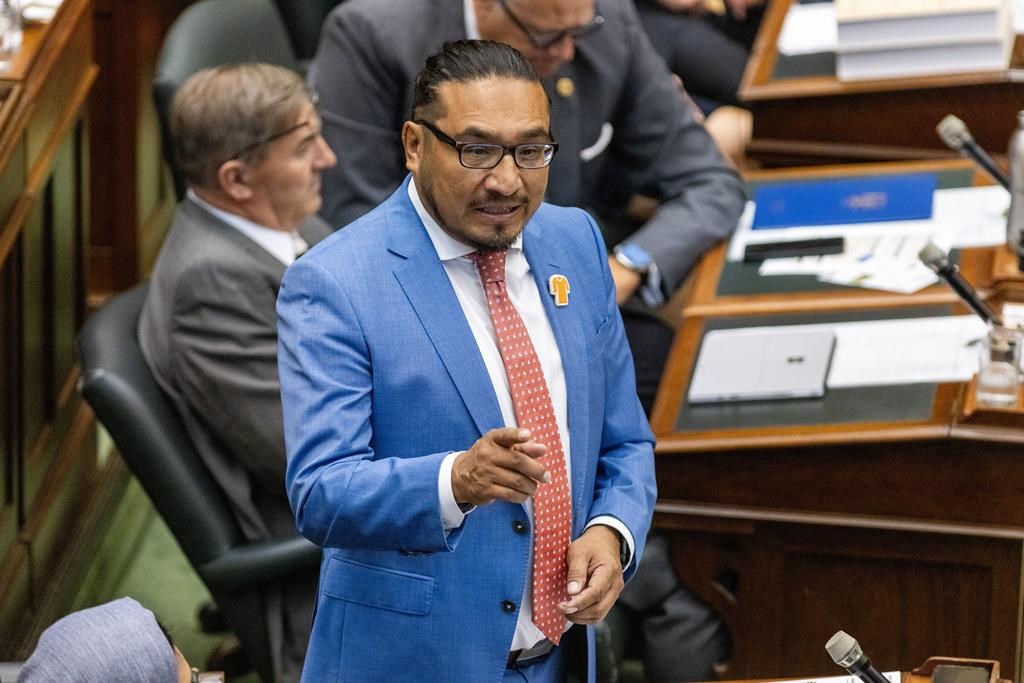Several First Nations and health officials in northern Ontario are asking for help after declaring a state of emergency over mental health crises across their territories.

Cat Lake First Nation Chief Russell Wesley said 188 people of the 500 who live in his community are part of a mental wellness program, but they need more support.
He said the overall health of the community is poor.
He said 36 people have died since he became chief in July 2020, with their deaths being attributed to a variety of causes ranging from cancer and diabetes to suicides and drug overdoses.
“The health care system is failing our people,” Wesley said at Queen’s Park this week.
A 24-year-old man in Cat Lake recently died by suicide, the chief said, with staff members having to respond. “These are common occurrences,” he said.
Wesley, the Sioux Lookout First Nations Health Authority, the Indigenous Primary Health Care Council and the Ontario NDP are calling on the province to recognize colonialism as an overarching determinant of health.
New Democrat deputy leader Sol Mamakwa tabled a motion in the Ontario legislature Thursday with the First Nations’ support asking the government to recognize colonialism as a social determinant of health.

Get weekly health news
“It’s important for the government to acknowledge that colonialism is alive and well and that it harms people,” Mamakwa said.
In the house, Mamakwa asked the government in question period if it would support the motion.
Government House Leader Paul Calandra said it would not.
“While I appreciate the member opposite’s question, there is a tremendous amount of work that is being done across the province of Ontario with partners in Indigenous communities as well as in northern Ontario and, really, across the province,” Calandra said.
“But I can confirm for the member that we will not be supporting this motion today. We will continue to double down on our efforts to improve health care for all Ontarians, including Indigenous partners.”
The Sioux Lookout First Nations Health Authority, which serves 33 First Nations in northwestern Ontario, declared a state of emergency in September after analyzing data that show an alarming rise in self harm.
Sioux Lookout First Nation band members went to the emergency department for mental health and addictions at a rate 14 times the provincial rate, said Dr. Lloyd Douglas, a public health physician for the health authority.
Band members also visited the ERs for intentional self harm or suicide risk at a rate 16 times the Ontario rate.
Douglas said colonial practices are the underlying reason for poverty, overcrowded housing, lack of education and inequitable access to health services on the area’s First Nations.
“This government should recognize and accept this motion, that’s the first step,” Douglas said. “Because until the underlying determinants are addressed, the upstream determinants are addressed, then we will not be closing the gap.”
An integrated health-care hub designed and controlled by First Nations would go a long way to improving lives, said Caroline Lidstone-Jones, CEO of the Indigenous Primary Health Care Council.
“We are not seeing the success factors like we should with the mainstream health systems, and many times our own services are benchmarked and compared to that,” she said. “Unfortunately, we do see deaths, and unfortunately, many times we’ve sat at tables where deaths should have been prevented, but unfortunately, they weren’t.”
Wesley said both the provincial and federal governments need to step up.
“It’s the unwillingness of the parties to work together that’s a hindrance to solving all of these problems that we have,” he said. “It causes conflict and colonialism.”








Comments